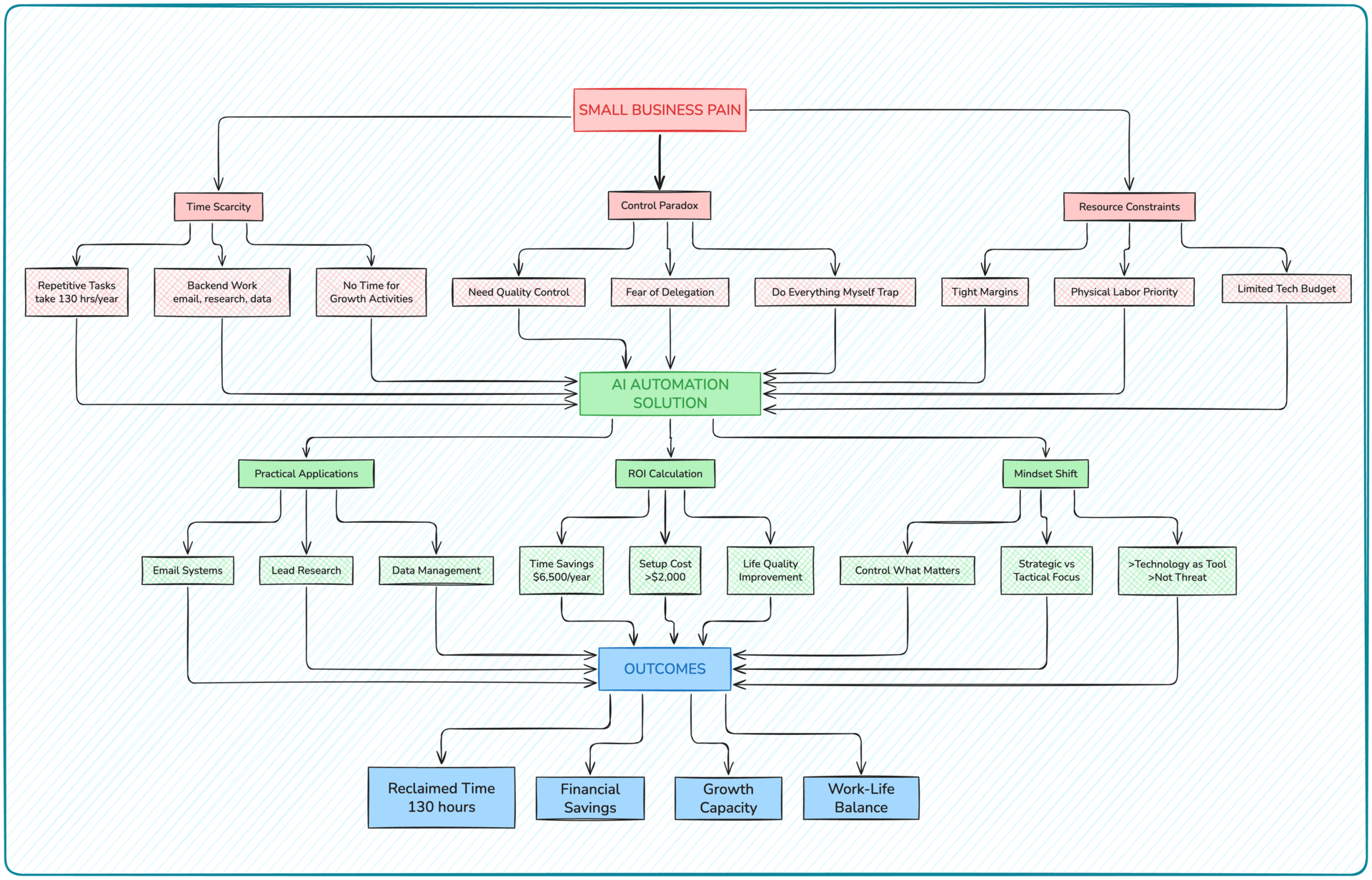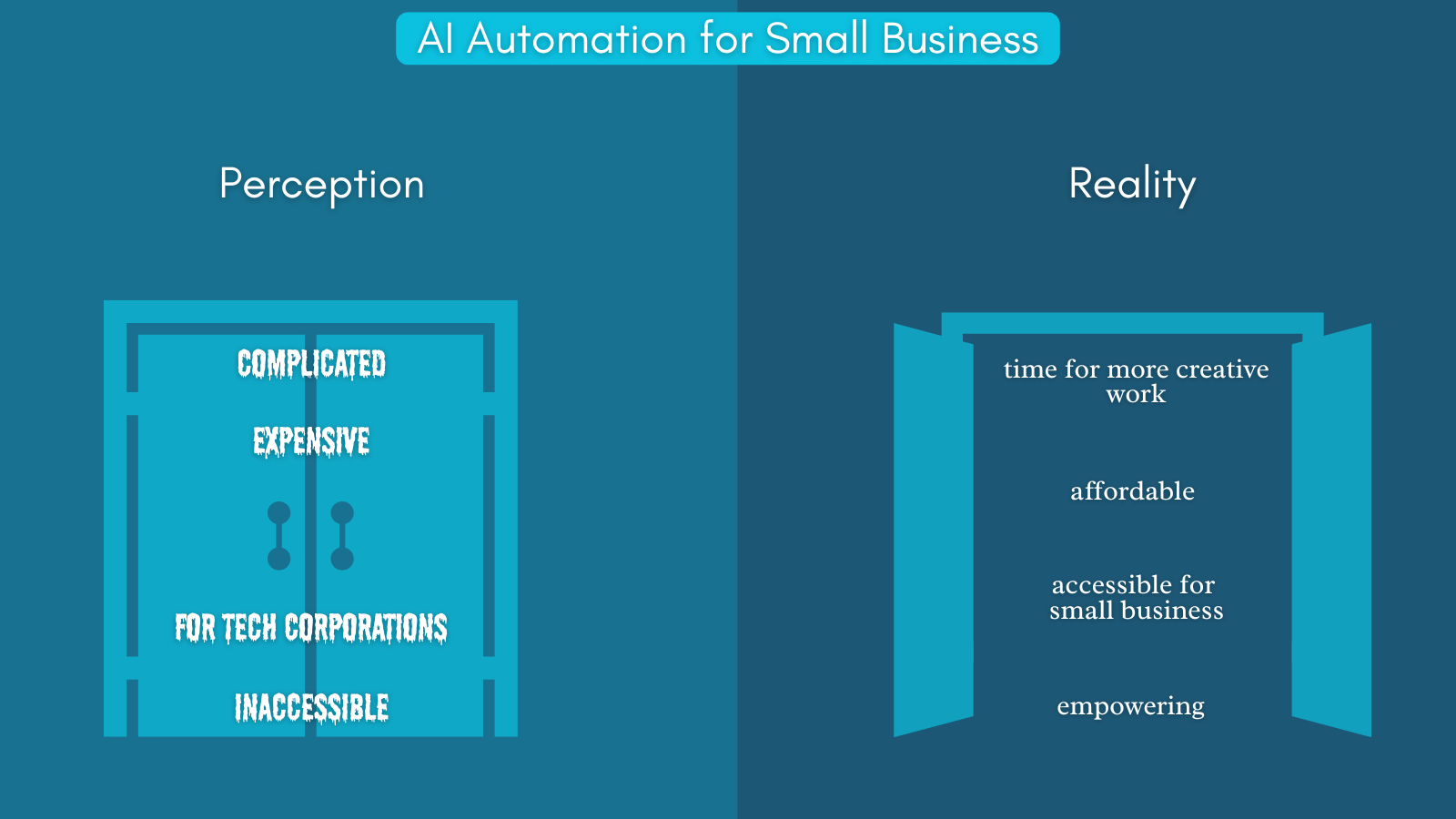- The Operator's AI Playbook
- Posts
- Why AI Actually Works For Real Businesses
Why AI Actually Works For Real Businesses
AI automation for small businesses sounds a little "woo woo" when I say it out loud.
But then I look at the automated system I built that queues up emails every two hours. All I do is make minor tweaks and hit send.
Saves me about an hour a day.

why we can save you time and money
As someone who ran a local business in the physical world, where margins are tight and real work needs doing, I get the skepticism.
When you hear "AI automation," it feels like tech bro nonsense that won't help with actual problems.
Reminds me of this meme.

Because at the end of the day, someone still needs to scrub dishes at 10pm. Someone still needs to show up at 9am to install carpet, lay tar on driveways, or haul old windows to the disposal site.
You get the point.
The reality of physical work
I understand that physical labor is the majority of most small business jobs.
It's hard work. AI isn't going to help with that.
Even coordination requires human oversight. Sure, AI might help with scheduling, but you still need someone there making sure things actually get done. Because that's what business is about: getting things done on time, exactly like you said you would.
Otherwise your business dies.
But here's what I've realized after four years of running a small business.
Every small business has backend work that needs doing:
Lead generation
Email marketing
Competitor research
Customer management
This stuff usually happens on a computer because it's easier to coordinate and saves time. And time is the one thing that's always tight for small business owners.
The repetitive trap
If you own a small business or operate within one, you're probably doing something tedious and repetitive. Something where the process hasn't changed because it's "tribal knowledge" and "how it's always been done."
That's costing you time.
Time that could be spent increasing sales.
Time that could be spent grilling on Sunday afternoon instead of being locked to a laptop you want to spike into the ground.
Maybe there's a system you've wanted to implement but haven't had time. Or you haven't implemented it because you know you won't have time to manage it once it's running.
The control freak's dilemma
Here's the mindset shift that took me way too long to make: you don't have to do everything yourself.
I know, I know. If you want something done right, do it yourself. That's been drilled into every small business owner since day one. We're control freaks by necessity because when things go wrong, it's our name on the line.
But there's a difference between maintaining quality control and micromanaging every single task.
The question isn't "Can a computer do this as well as I can?" The question is "Can a computer do this well enough that I can focus on things only I can do?"
That carpet installer? He shouldn't be spending an hour each morning manually sending follow-up emails to prospects. He should be installing carpet or strategizing on the next big move5.
The restaurant owner? She shouldn't be copying customer emails into spreadsheets at midnight. She should be perfecting recipes or going home to her family.
The shift is moving from "I control everything" to "I control what matters."
Why it's not actually "woo woo"
AI automation can speed up those already established repetitive systems so you get that time back. Or a system could be spun up that increases leads without you touching it.
I have an automated system that triggers when someone fills out a Google form. It adds the client to my database, sends them a welcome email, then researches their company and sends me a report.
I don't even realize the form was filled out until I get a research report that looks like this:

Now I don't need to research them at all. I just have the information.
The math that matters
Let's talk numbers because that's what actually matters to small business owners.
Say you spend 30 minutes a day on one repetitive task. Maybe it's updating spreadsheets, sending follow-up emails, or researching prospects.
That's 2.5 hours per week. About 130 hours per year.
If you value your time at $50 an hour (and you should value it higher), that repetitive task costs you $6,500 annually. If you're paying someone else $20 an hour to do it, it's still costing $2,600.
An automation that eliminates that task might cost $2,000 to set up. It pays for itself in the first year, then it's pure profit every year after.
But it's not just about the money you save. It's about what you can do with those 130 hours.
130 hours is enough time to:
Launch a new service line
Build relationships with 50 new prospects
Take a real vacation without checking email
Actually work on your business instead of in it
The ROI isn't just financial. It's getting your life back.
The practical lens
My point is there are plenty of practical uses for AI automation in small businesses. I'm offering services through that lens: automations you'll actually use to save time or drive revenue.
Or both.

If you're a small business owner or manager, think about the time that could be saved implementing systems like this.
If you're someone looking to provide valuable service, think about learning how to use this stuff.
Because while the dishes still need scrubbing and the windows still need installing, the tedious computer work that keeps you up at night? That can probably be automated.
And that's not "woo woo" at all. That's just getting your time back.
Thanks for reading,
James

This will help you organize your mind and bring calm to your business, check it out.

Reply